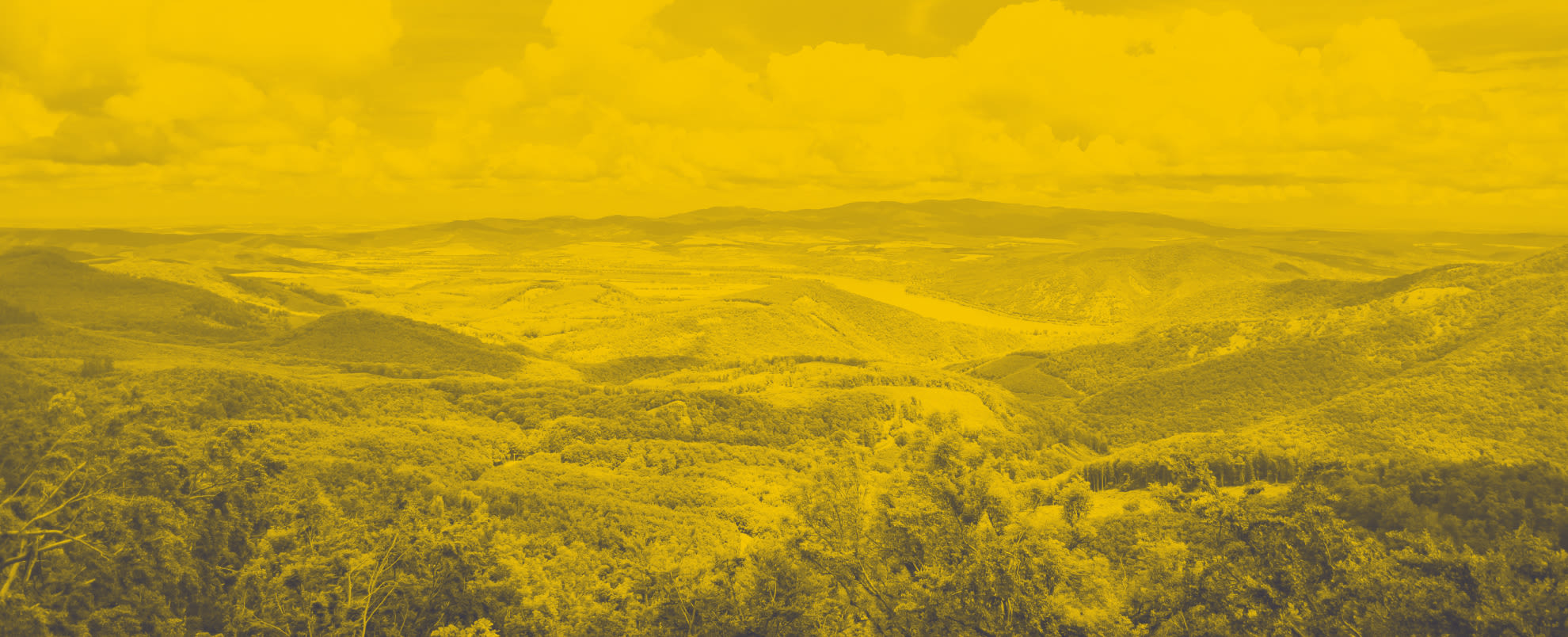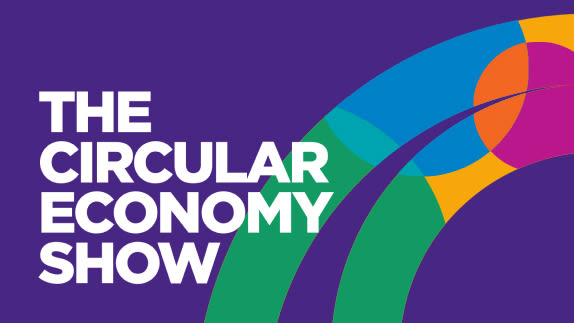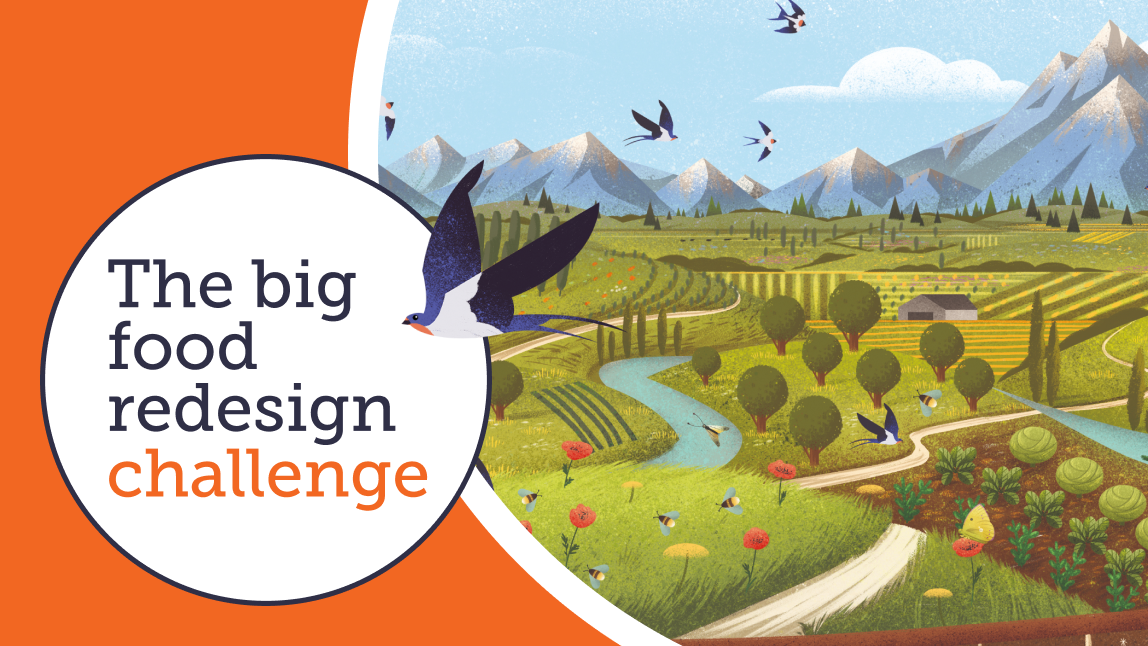This is part of a series of case studies that illustrate how food businesses are creating innovative collaborations in order to regenerate nature.
In Brief
Landscape Enterprise Networks (LENs) is a joint effort between farmers, food and drinks businesses, water utility firms, and other organisations with a commercial interest in particular regional landscapes. Together, they invest in and deliver nature-based and agricultural measures to make a landscape healthier, more productive, and resilient. LENs offers a scalable structure for public-private collaborations to prioritise nature and resilience.
The project was developed by the UK-based sustainability consultancy 3Keel, with support from strategic partners Nestlé, PepsiCo, and Diageo. These companies buy the crops that are grown in the initiative’s six regions, including three in the UK and one each in Hungary, Italy, and Poland.
In each project, they liaise with a body representing all the farmers and come up with a plan to underwrite developments, share risk, and maximise environmental outcomes.
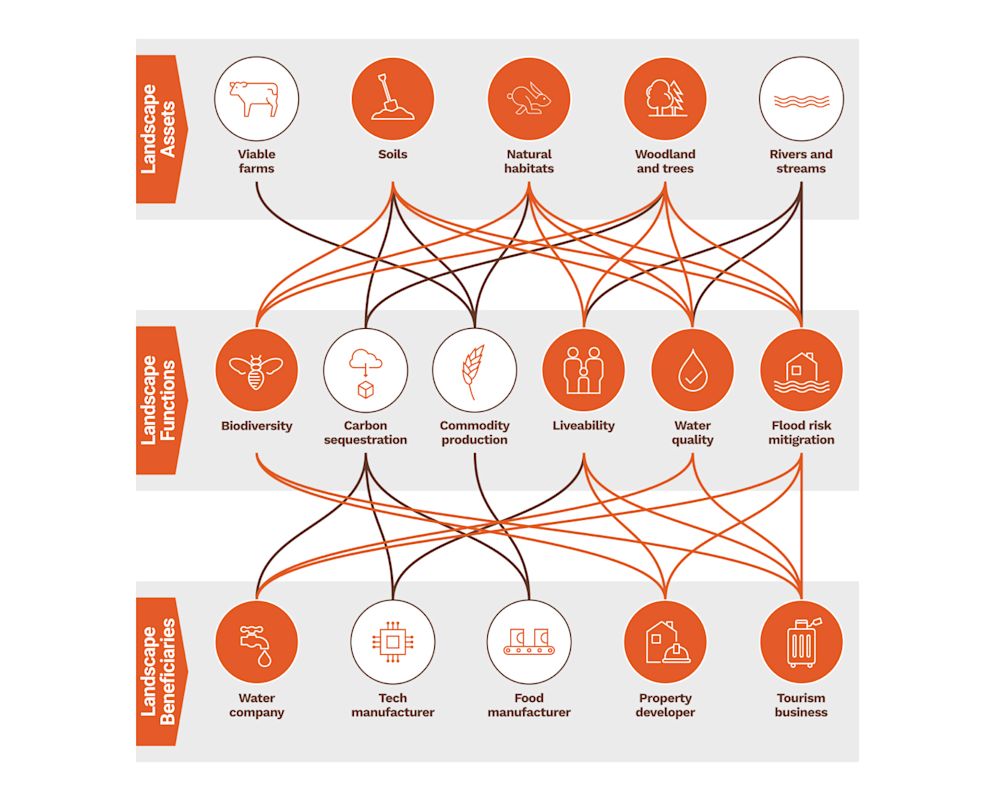
How it started
The scheme originated as a pilot in Cumbria in the UK in 2017, when Nestlé, water firm United Utilities, and First Milk cooperated in a scheme to reduce phosphorus in the region’s rivers, create habitat features like hedgerows, and improve biodiversity, flood management, and soil structures.
The project emerged from the shared understanding between 3Keel and Nestlé that the food conglomerate’s business resilience relies on viable ecosystems. Companies are now also increasingly subject to regulatory requirements to be able to demonstrate positive impacts on nature, whether this is in reducing GHG emissions in their supply chains (scope 3 emissions), or reversing biodiversity losses.
What’s happening?
Each of the six projects has different partners and aims, reflecting the different landscapes. The Hungarian project is the largest in continental Europe, stretching across 12 farms in the Transdanubia region and has doubled in size since it began in 2022. It is funded by Nestlé Purina Petcare, which has a large factory in the region and sources much of its ingredients locally. The project focuses on aiding farmers with challenges such as moisture retention, waterlogging, soil loss, and nutrient depletion.
Farmers are provided with resources and expertise to implement in-field agronomic measures such as cover crops, integrated fertility programmes, and reduced cultivation/tillage. This helps to improve soil structure, increase organic carbon content, and support soil biology development, leading to better water infiltration and nutrient uptake by crops.
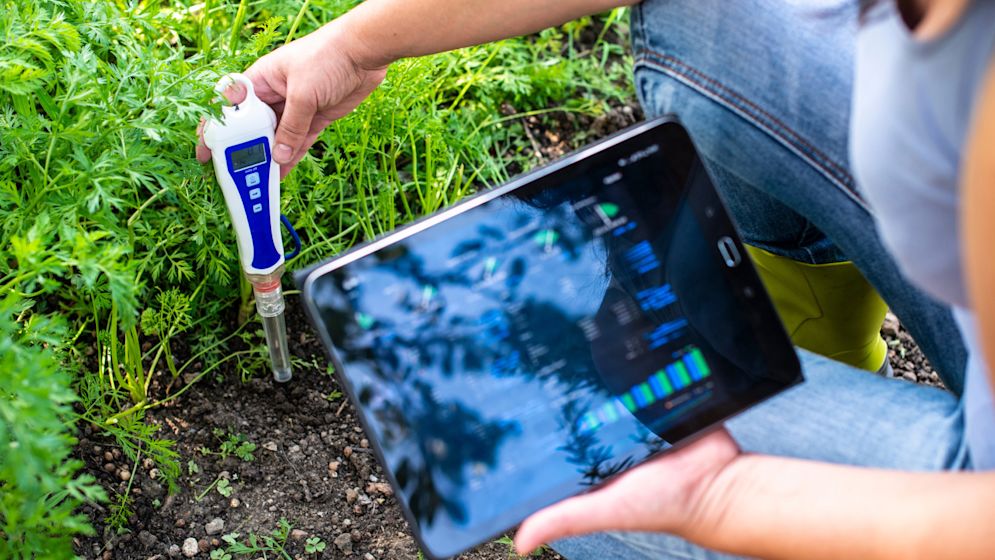
Farmers are encouraged to adopt precision agriculture practices to reduce input usage and optimise yields. LENs Hungary promotes farm-level waste reduction and increased resource efficiency, such as recycling farm waste into organic fertilisers to help close the nutrient loop, reduce greenhouse gas emissions, and minimise waste disposal costs. Replacing synthetic fertilisers within the Hungary LENs region with organic versions resulted in favourable yields compared to conventional practices.
Measurement, Reporting & Verification (MRV) is a critical component of all the LENs projects, enabling businesses in the network to track progress against targets, measure the impact of investments, and provide a clear picture of farms' sustainability.
One of the other major benefits for all parties of taking this landscape approach is that the many similar requests from corporate project members (for benchmark measures of, for example, soil structure/fertility/carbon content or water quality) can be organised by one body. This reduces the logistical burden on farmers and aids consistency.
MRV pilots were put in place in 2023 in all active LENs regions, working with a number of partners to pilot different approaches to measuring impact. The LENs community and 3Keel are using the findings from the 2023 MRV pilots to build robust methodologies to track against key metrics, building a picture of how LENs interventions can help to build regenerative and resilient landscapes,.
Why it’s an example of the circular economy
This is one of the best examples of a business prioritising nature and, in doing so, future-proofing its own business model.
LENs exemplifies the circular economycircular economyA systems solution framework that tackles global challenges like climate change, biodiversity loss, waste, and pollution. It is based on three principles, driven by design: eliminate waste and pollution, circulate products and materials (at their highest value), and regenerate nature.'s third principle of regenerate nature. By transitioning from a wasteful linear economylinear economyAn economy in which finite resources are extracted to make products that are used - generally not to their full potential - and then thrown away ('take-make-waste'). to a circular economy, natural processes are supported, and more space is created for nature to thrive by enhancing soil health, reducing greenhouse gas emissions, and improving water quality.
The project is also a good illustration of the employment of systems thinking – one of the key building blocks of a circular economy. By focusing on a landscape as a whole, each LENs project can prioritise its needs and then work out how businesses can come together to invest for these outcomes. This is more effective than companies establishing individual contracts with farmers, and it also has the potential to yield opportunities in the interdependencies between parties – for example an investment aimed at reducing carbon emissions might simultaneously deliver better water conservation and build better animal habitats.
Lessons learned (so far)
Nestlé has discovered that one of the challenges in aligning the LENs projects with its operation has been the fact that internal environmental KPIs must be reported quarterly, even though the aims of the LENs projects are designed to be long-term.
Persuading farmers of the benefits of switching to regenerative production is much easier when they hear it from other farmers. Using the right tone with this community is so important, says Nestlé UK and Ireland regeneration lead Matthew Ryan:
They don’t want glossy brochures and talk of carbon markets. They need to hear and be convinced of our long-term intentions to support them, with a ‘boots on the ground’ commitment to understanding their challenges. Being honest and humble and willing to talk about failures as well as successes is the key to gaining trust”.
Getting this right means that it is more possible to communicate the key message that farmers won’t in the long-term lose income by switching to practices that support regenerative outcomes.
Corporate collaboration includes compromise. Each of the corporate members of the LENs projects have collaborated with each other to agree on a common set of data collection requirements from farmers, to minimise the burden on them. This has at times necessitated compromise in the breadth of monitoring data that each company can bring back into its operations.
